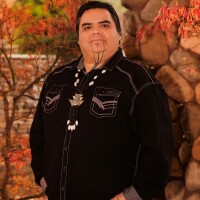The California State University is beginning the process of returning almost 700,000 cultural belongings, including almost 6,000 ancestors, to Native American tribes — something they were required to do by federal law in 1990.
An audit earlier this year found that they had returned only about 6% of those belongings.
And two campuses that did return some belongings didn’t follow the legally required process — possibly preventing other tribes from making a claim.
“We’re still trying to rebuild our nations from the genocide that happened to our people,” Jack Potter, Jr. said. “It is hard when we know the spirits of our ancestors are locked on shelves.”
Potter is chairman of the Redding Rancheria tribe of Wintu Indians.
“If you've never got the chance to go into those places, go and see our people sitting like a book in a library, waiting to come home. It's heartbreaking,” Potter said.
Below: Listen to Potter talk about his experience of picking up the remains of a grandmother and her five grandchildren from UC Berkeley two years ago.

Director of the CSU’s tribal relations, Maryann Reyes, said they don’t yet know what all those belongings are, to which tribes they belong, how they came into possession of the university, or even where they’re stored.
“They are going to look everywhere, from, sadly, from bookshelves to locked closets to cabinets,” Reyes said, “to find where their collections are.”
Reyes said she couldn’t speak to why it’s taken so long, having only been with the university since 2014.

Vice Chairwoman of Shingle Springs Band of Miwok Indians, Malissa Tayaba, called it a “system-wide failure.”
The audit found that the university didn’t prioritize funding or staff toward the effort.
California legislators are now requiring them to appoint volunteer committees and a full-time staff person to oversee the effort at each of the 21 campuses that have native belongings, as well as a system-wide committee.
That’s 154 vacancies they need to fill, most of which are unpaid.
The committees will have majority representation from Native American tribes, Reyes said.
Reyes said the CSU has about $2 million in funds to reassign to the effort, and plans to ask for roughly another $2 million from the state legislature.
It’s the beginning of a very long process, for which Reyes could not provide a complete timeline.
“We're not asking our campuses to rush to the repatriation process,” Reyes said. “The work is really going to be driven by the wishes of the California Indian tribes. We recognize that there's a great need for healing and the return of sacred items and burial of human remains, and we're going to be respectful of that. So it'll take as long as we need to take to do this right.”
For reference, Reyes said Chico State took three years to repatriate about 500 cultural items.
The audit recommended each campus be required to estimate by January the funding and resources needed.
Potter said it’s overdue: “Like Moses said to the pharaohs, I say to (the CSU), let my people go.”





